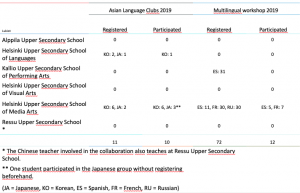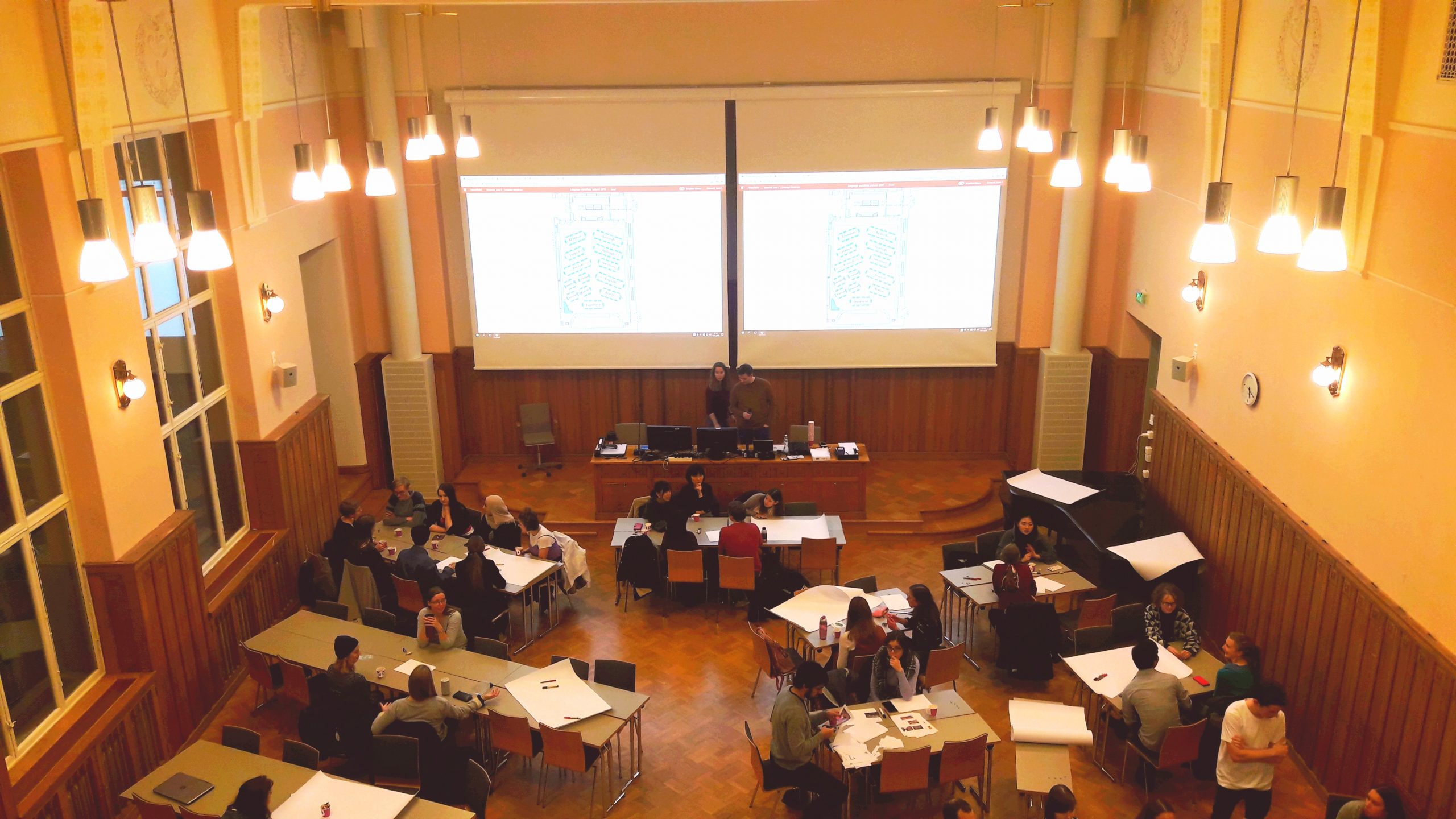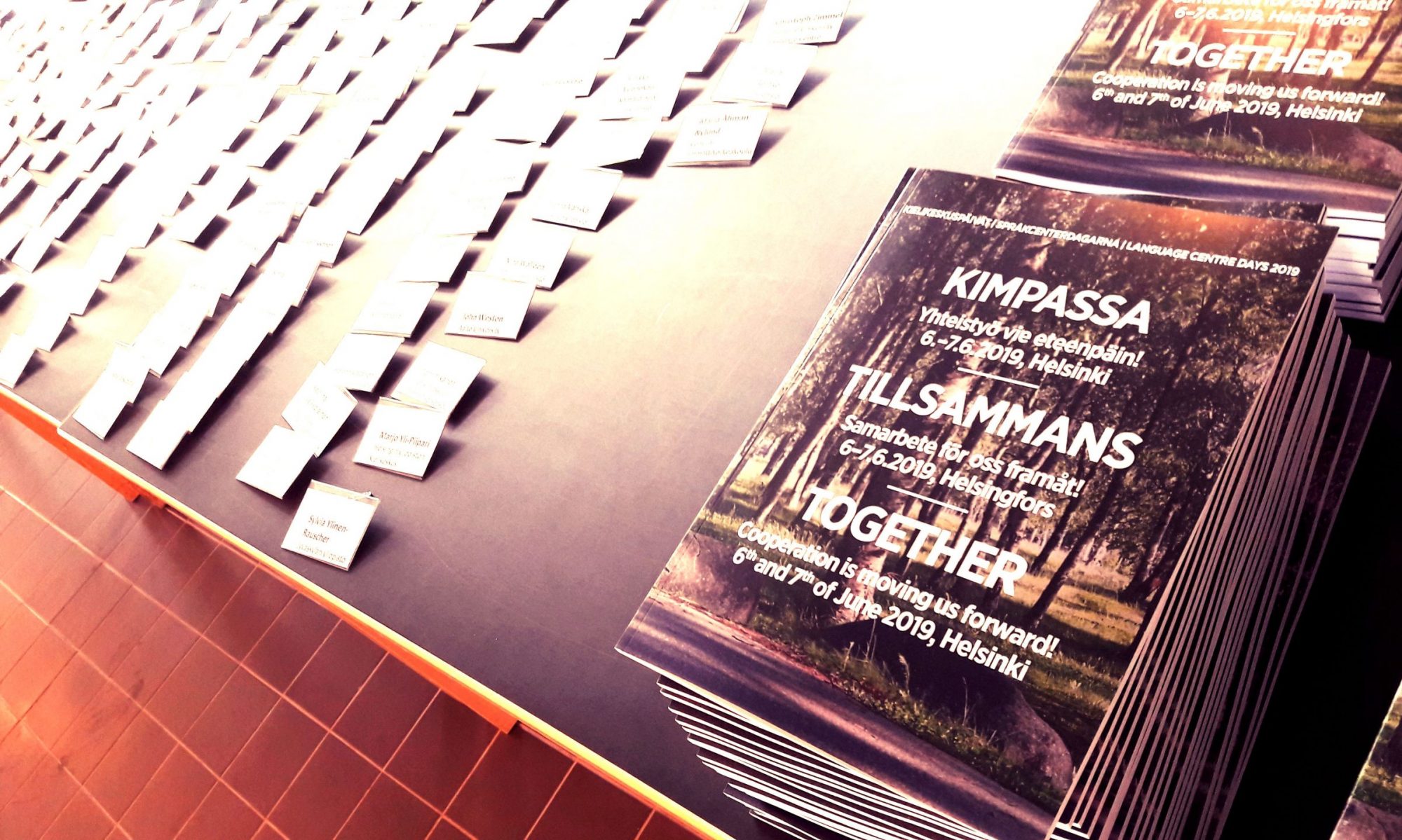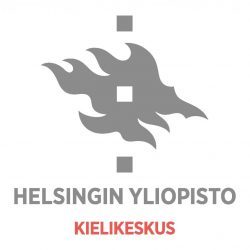The amendment of the Act on General Upper Secondary Education (Ministry of Education and Culture 2019) as well as the University of Helsinki guidelines for continuous learning played an important role when the Language Centre decided to plan cooperation with general upper secondary schools. One of the central amendments made to the above Act obliges Finnish general upper secondary schools to cooperate with institutions of higher education. This obligation does not apply to higher education institutions, but the Ministry of Education and Culture has decided (2016) that cooperation with upper secondary schools is one of the criteria used in the university funding models for 2017–2020. From a pedagogical perspective, meetings between international exchange students and general upper secondary school teachers and pupils provide opportunities for authentic interaction, in which the foreign language studied plays a central role. Multilingualism can also be a feature of these encounters: the participants can flexibly change from one language to another based on communication needs.
Stages of a cooperative pilot project
The course assistant programme for international students, coordinated by the Language Centre since 2013, was expanded in 2019 to encompass cooperation with general upper secondary schools. Plans were made in the spring and summer. My previous work at two general upper secondary schools in Helsinki as well as my contacts with general upper secondary school teachers made it possible to plan a small-scale pilot project in a short period of time. The pilot project of the course assistant programme took place in the 2019 autumn term. My role was to coordinate the cooperation, designed from the very beginning as a two-way process: general upper secondary school pupils could visit the Language Centre, while international exchange students could visit general upper secondary schools.
At the first stage, I arranged a meeting with 10 language teachers from a total of six general upper secondary schools in Helsinki who teach one or more of the following languages: Chinese, English, French, German, Italian, Japanese, Spanish and Swedish. I presented the cooperation model to the teachers, who could then ask questions and make comments. The instructions for exchange students, including teachers’ course timetables and information on the content of teaching, was specified during and after this meeting. At the second stage, I described the cooperation to international exchange students at the Language Centre’s stand during the University’s two-day carnival marking the beginning of the academic year. The students could register for a more comprehensive information session held later on. At the third stage, I told the international exchange students about the main features of the cooperation and promptly sent them an information package via email, with the contact information of the pilot schools’ language teachers, lesson timetables and English-language descriptions of the courses taught by the teachers based on the national curriculum for general upper secondary schools (Finnish National Board of Education 2016, 192–210).
At the fourth stage, it was important to encourage and assist the exchange students to contact the general upper secondary school teachers. This mainly took place via email and Microsoft Teams, but also on a face-to-face basis. At the fifth stage, a supervision session was held for the exchange students at the Language Centre. This was important, for example, for establishing cooperation between two German course assistants and a general upper secondary school teacher. In addition, the session enabled the recruitment of international students to lead multilingual workshops for University students and general upper secondary schools pupils as well as Asian language clubs. Once the above activities had been planned together with international exchange students, general upper secondary school pupils were invited to them through their teachers. At the sixth stage, the cooperation became concrete, with general upper secondary pupils participating in language clubs and multilingual workshops. The Korean language clubs as well as the French, Spanish and Russian groups of the multilingual workshop were most popular with the pupils, as shown in Table 1 below. However, the number of pupils registered for the events was higher than the number of participants. This may be due to the pupils being too anxious to participate in a language club or workshop, or to time-related difficulties. Some cancelled their participation, saying their schedule had changed or they were busy. In addition, the Language Centre’s festival hall (juhlasali) only has space for a limited number of participants, and this time members of the University community were more active at the registration stage.
Table 1. General upper secondary schools participating in the pilot project as well as those registered for and those participating in the Language Centre events

In addition to the schools listed in Table 1, one pupil from Etu-Töölö Upper Secondary School attended each of the five meetings of the Asian language club and one pupil from Sibelius Upper Secondary School attended the first meeting.
Reciprocal visits were also organised, with the course assistants giving presentations at the general upper secondary schools or otherwise assisting studies in the target language at the schools. The pilot stage in 2019 involved two German course assistants and one Chinese course assistant. Particularly Marie Roth from Germany was exemplary in her commitment: she gave a presentation on her studies to pupils studying German at Kallio Upper Secondary School and assisted Hanna Saari, lecturer of German, at several lessons. Saari praised Roth’s contribution:
“Thank you once again for this cooperation. I was very satisfied with my German student assistant Marie Roth – she was a real find!”
Roth also described the cooperation to other German student assistants and took part in a video interview we filmed for UniTube. We created subtitles for the video together with Anna-Lena Krug, an international trainee at the Language Centre.

Continued cooperation with general upper secondary schools
The above mentioned video interview was shown to international exchange students interested in the course assistant programme at an information session in January 2020. It was a pleasure to note that, during spring 2020 before the exceptional circumstances caused by the coronavirus crisis, the course assistants in not only German and Chinese, but also Spanish, French and English were interested in the cooperation. The assistants in Spanish and English had the opportunity to visit Kallio Upper Secondary School and Helsinki Media Arts Upper Secondary School. Laura Martin, a course assistant in English, has also promised to write a blog post on the cooperation. The Language Centre’s multilingual workshop had to be cancelled in spring 2020, but the Asian language clubs were moved online by active course assistants and the Language Centre’s Support for Teaching and Learning Unit. Once the situation has returned to normal, the aim is to continue this form of cooperation with general upper secondary schools.
Text: Lasse Ehrnrooth, specialist (internationalisation and guidance)
Photo: Janne Niinivaara
Sources
Opetus- ja kulttuuriministeriö. (2019). Lukion ja korkeakoulun yhteistyö vahvistamaan lukiolaisen jatko-opintoalan valintaa. Visited on 30.4.2020, https://minedu.fi/artikkeli/-/asset_publisher/lukion-ja-korkeakoulun-yhteistyo-vahvistamaan-lukiolaisen-jatko-opintoalan-valintaa.
Opetus- ja kulttuuriministeriö. (2016). Opetus- ja kulttuuriministeriön ja Helsingin yliopiston välinen sopimus vuosille 2017- 2020. Visited on 30.4.2020 https://minedu.fi/documents/1410845/3992561/Helsingin+yliopisto+sopimus+2017-2020.
Finnish National Board of Education. (2016). National core curriculum for general upper secondary schools 2015: National core curriculum for general upper secondary education intended for young people. Helsinki: Finnish National Board of Education.

